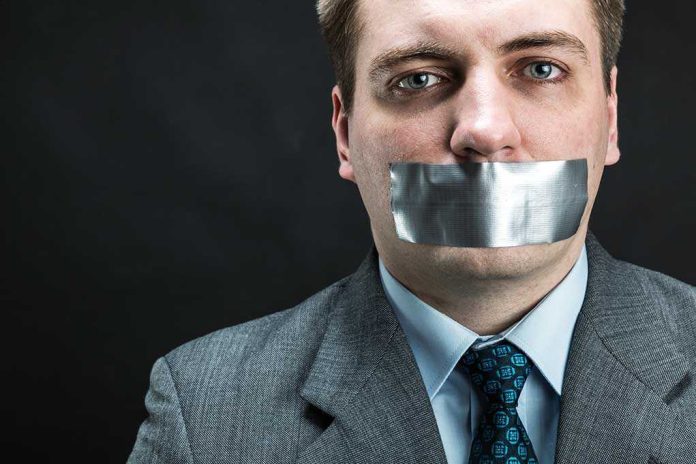
Federal authorities are now targeting noncitizen student journalists for deportation based solely on their published speech, igniting a constitutional showdown that could reshape free expression on America’s campuses.
Story Snapshot
- A federal lawsuit alleges noncitizen journalists face deportation for protected speech, raising First Amendment alarms.
- The case centers on Stanford Daily staff and their coverage of the Israel-Gaza conflict.
- Advocates warn of a chilling effect on campus journalism and academic freedom nationwide.
- The outcome could set a precedent for free speech and immigration enforcement in the United States.
Federal Policies Threaten Free Speech for Noncitizen Journalists
On August 6, 2025, the Foundation for Individual Rights and Expression (FIRE) filed a lawsuit in the U.S. District Court for the Northern District of California on behalf of The Stanford Daily and two former student journalists. The suit challenges recent federal policies that enable the arrest and deportation of noncitizen journalists based on the content of their reporting, particularly related to the Israel-Gaza conflict. These actions have alarmed free speech advocates and constitutional scholars, who see them as a direct threat to First Amendment protections for all journalists, regardless of citizenship.
Reports from 2024 and 2025 indicate a surge in federal scrutiny of international students, especially those who voiced criticism of U.S. allies or government policy. Noncitizen staff at The Stanford Daily have described a climate of fear, with some feeling compelled to self-censor or erase past work to avoid immigration consequences. Such policies, critics argue, amount to punishing individuals for engaging in protected journalistic expression and undermine the United States’ longstanding commitment to free discourse and a free press.
Legal and Constitutional Stakes in the Stanford Lawsuit
This case stands at the intersection of First Amendment rights, immigration law, and the future of campus journalism. The plaintiffs assert that federal policies targeting speech-based deportation violate constitutional guarantees of free expression and due process. Will Creeley, FIRE’s Legal Director, emphasized that “the First Amendment bars the government from punishing protected speech—period. In our free country, you shouldn’t have to show your papers to speak your mind.” The federal government, represented by Secretary of State Marco Rubio, maintains that regulation of immigration and national security justifies certain enforcement actions, sparking fierce debate among policymakers and legal experts.
Historical parallels are not lost on observers. Past eras—such as McCarthy-era deportations and post-9/11 scrutiny—saw noncitizens punished for political speech, but the current lawsuit could set a modern precedent on whether noncitizens are fully protected in their journalistic activities. The case’s outcome will determine whether the courts recognize robust First Amendment protections for noncitizen journalists, or if immigration enforcement can override fundamental rights on campus and beyond.
The Chilling Effect: Broader Impacts on Universities and Free Expression
Beyond the immediate parties, this legal battle affects thousands of international students and campus journalists nationwide. The threat of deportation for controversial reporting has triggered widespread self-censorship, eroding academic freedom and the integrity of student media. Universities—including Stanford, with its diverse international community—face mounting pressure to safeguard their students’ rights while navigating federal scrutiny. If the injunction is granted, it may temporarily protect vulnerable journalists and spark renewed debate about the balance between national security and civil liberties. Conversely, if the government prevails, universities could see declining international enrollment and diminished campus discourse.
Advocacy groups and legal scholars warn that normalizing speech-based deportation expands government overreach and sets a dangerous precedent. The case has already heightened public awareness and galvanized both civil liberties advocates and strict immigration proponents. Ultimately, the decision will influence not only campus journalism, but also the nation’s broader commitment to constitutional freedoms amid ongoing political polarization.
While the courts deliberate, the climate of fear and self-censorship persists, with noncitizen journalists and their allies watching closely for a ruling that could either reaffirm or erode America’s core constitutional values. The debate underscores the enduring tension between immigration enforcement and the fundamental right to speak freely—a cornerstone issue for American conservatives concerned about government overreach and the protection of individual liberties.
Sources:
FIRE Case Overview, 2025-08-06



